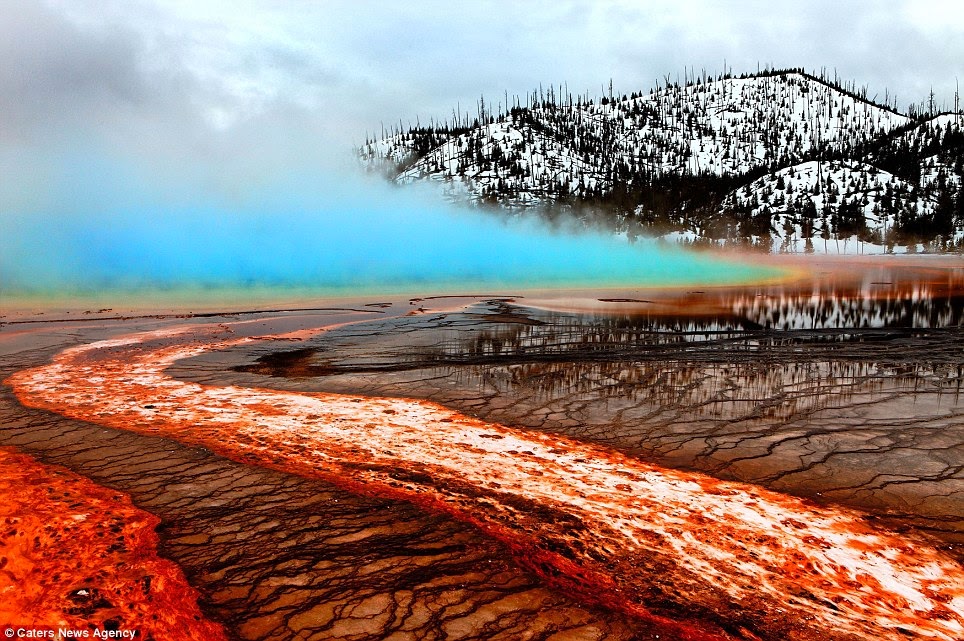Two fearless photographers Nick Selway,
28, and pal CJ Kale, 35 have risked their lives to become the first people to
capture the explosive moment blistering lava crashes into the sea while in the
water themselves. They’ve just use a simple protective casing around their
cameras, and wearing just swimming shorts and flippers. The valiant duo brave
baking hot 110F (43,3C) waters to take the astonishing pictures standing just
feet away from scalding heat and floating lava bombs. Hawaii is a collection of
volcanic islands situated over a geological 'hot spot' in the Central
Pacific.
The daredevils said; we’ve shoot
photographs all over the world but our volcano pictures are so spectacular.
We’ve spent so many days on the edge of volcanoes, either leaving at midnight
to get out before the light of the rising sun or even hiking in the day and
then staying overnight. We’ve used surf-housing which is a protective case so
we can venture into the water with big hearts, as the heat and water would be
too much for them. You just imagine it’s an 110F where we were and just 20ft in
front of us and water was extremely boiling. We have a lot of entertaining
stuff but it's really unsafe and I wouldn't suggest anyone to trying it for
themselves. Even I fell into a lava-tube
which has shattered my ankle. After climbing out we had to lash my foot to my
leg with a tripod, camera strap and belt and hike over the rugged terrain for
two miles. Not several people die each year but when they do it's usually in
large groups when large chunks of land drop into the sea.
There are 8 main islands and 6 of these
are open to tourism. Therefore; Hawaii (Big Island) is the largest of the
islands and home to Mauna Kea and the Hawaii Volcanoes National Park which
includes two of the largest and most active volcanoes on Earth Mauna Loa and
Kilauea. There are currently three active volcanoes in Hawaii. Moreover;
Maunaloa was last erupted in 1984, whereas Kilauea has been erupting
continuously since 1983. Loihi is situated underwater off the southern coast of
Hawaii's Big Island and has been exploding since 1996. It could break through
the surface in about 250,000 years, adding a ninth distinct island to the
Hawaiian chain.
(Photo by Nick Selway/CJ Kale/Caters
News Agency) Source: Dailymail














No comments:
Post a Comment